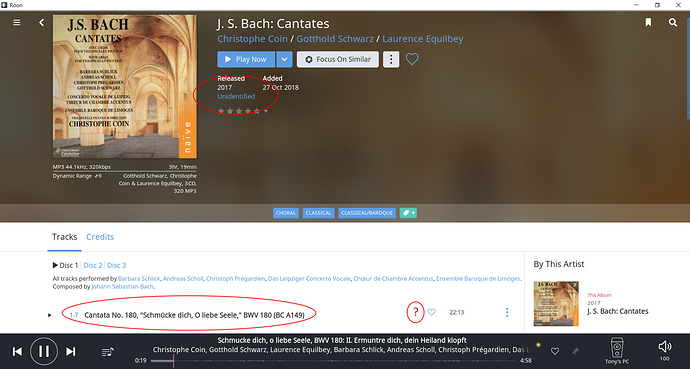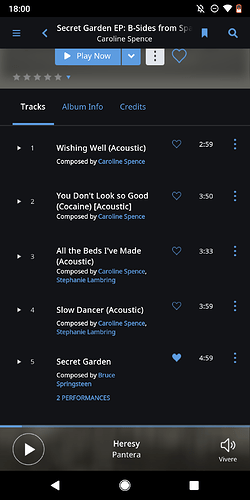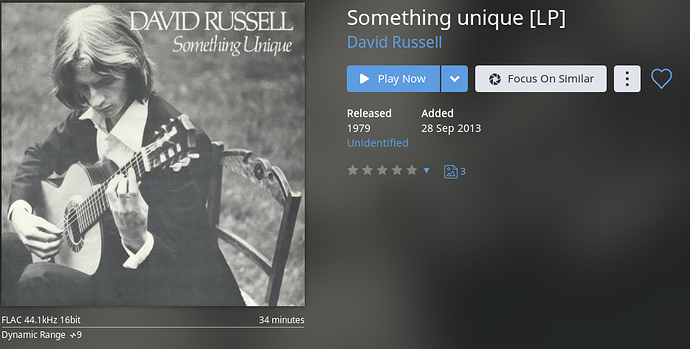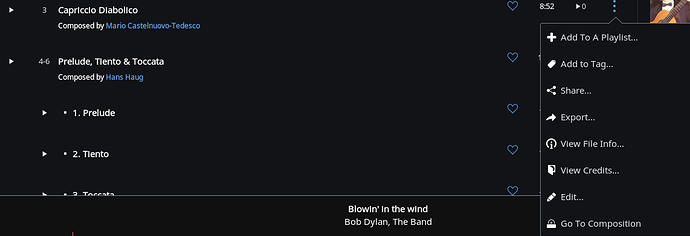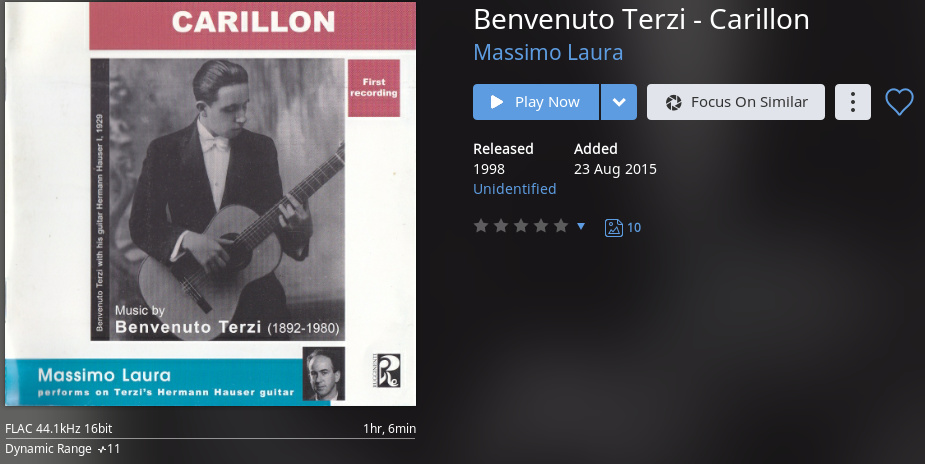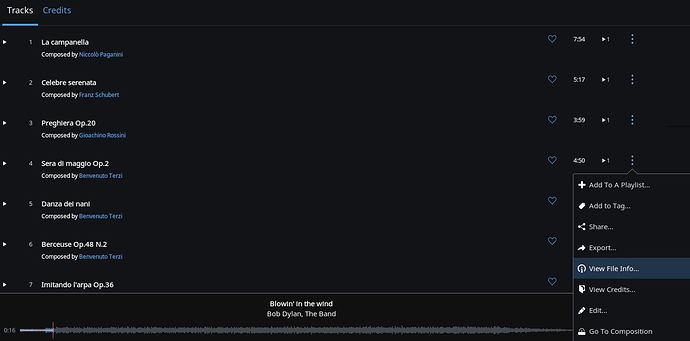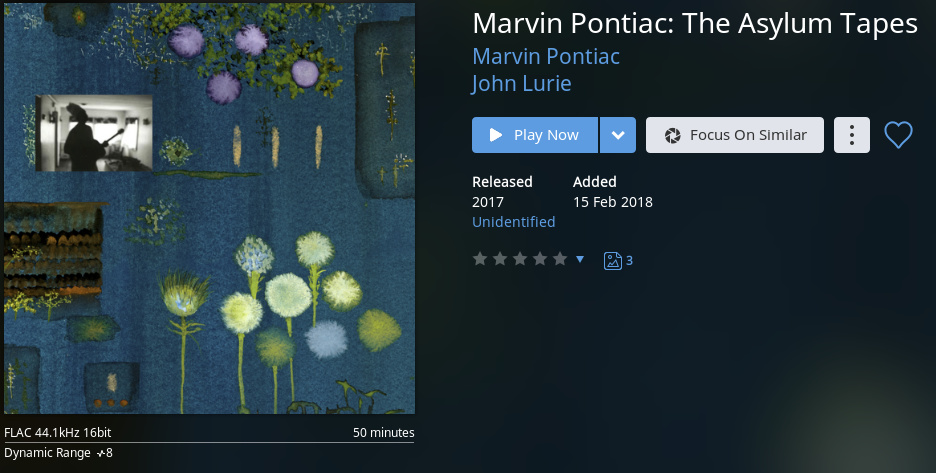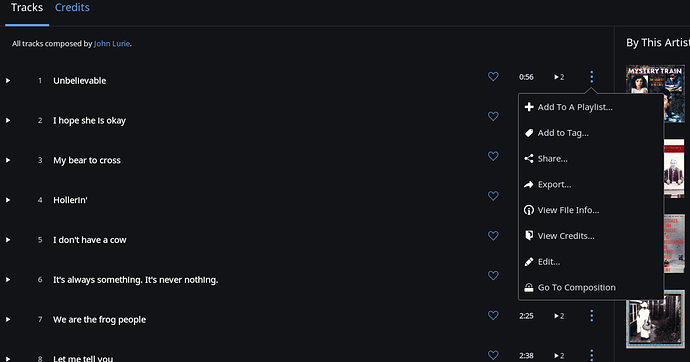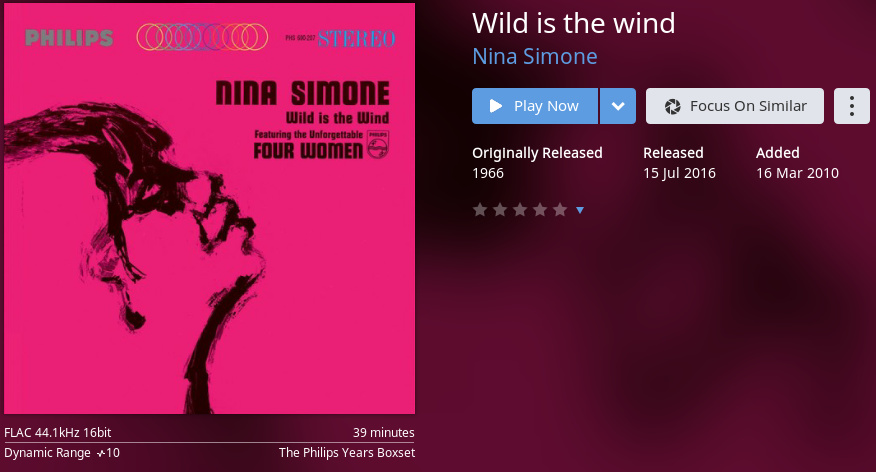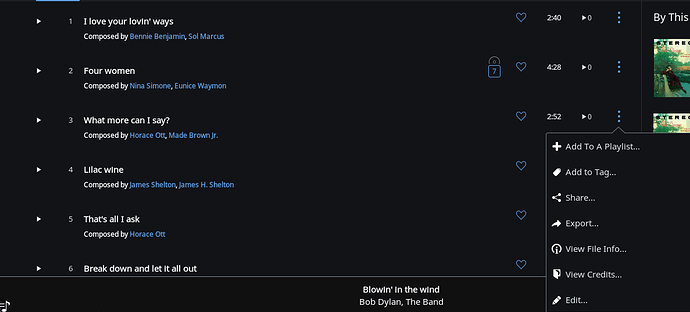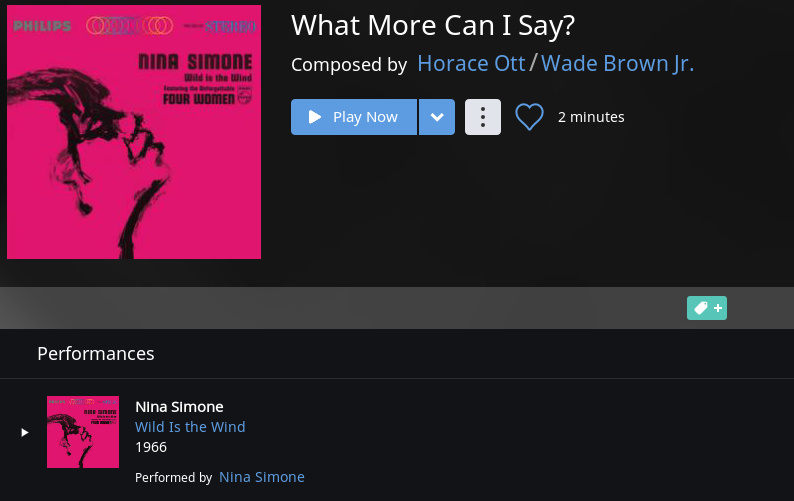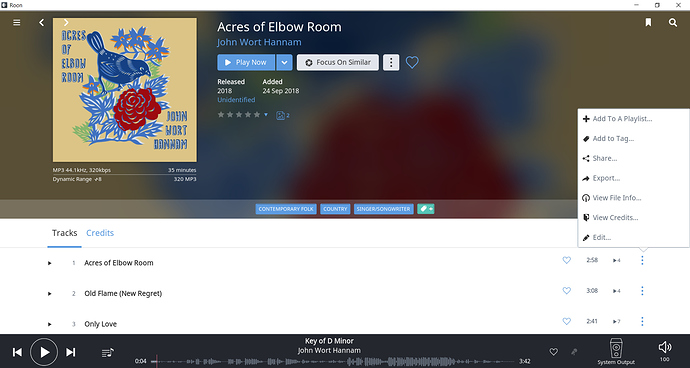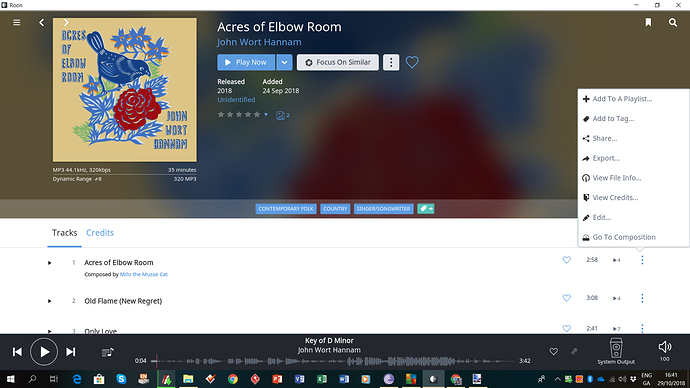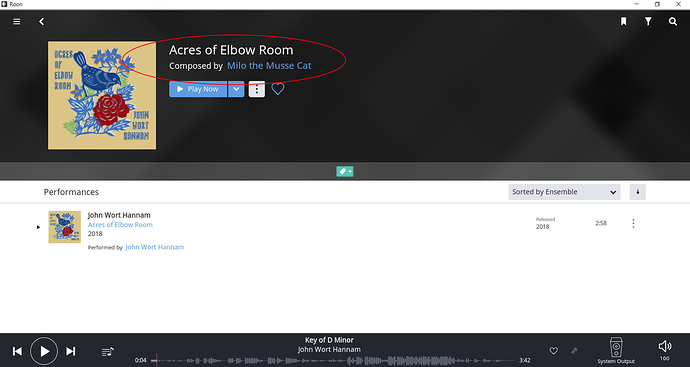Often an unidentified album will have a combination of identified and unidentified compositions. To me it is even more important to identify compositions in unidentified albums as it integrates an otherwise “orphan” album into my library.
Scenario 1
However, if these unidentified compositions are singletons (that is, I have no other instances in identified albums) then there does not seem to be anything I can do to force roon to recognise them. By definition these are singletons so there are no other composition instances I could merge them with. But I also find that changing the titles to match the canonical names on allmusic will not force an id either.
Scenario 2
The pattern I notice is that if I import an identified album that has compositions in common with my unidentified album then suddenly the unidentified compositions in the unidentified album are now identified.
It seems to me that roon is aware of the compositions in both scenarios but chooses only to make the relevant links in scenario 2. If roon has the composition information it should be making the identification and all relevant links in both scenarios. Has anyone else noticed this behavior? In many ways getting as many composition id’s as possible is even more important in scenario 1 than scenario 2 as it goes a long way to compensating for the lack of an album identification.
